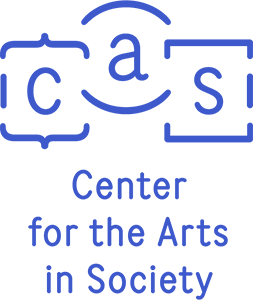A still from the film "Wolf and Sheep" directed by Shahrbanoo Sadat.
Artists and Scholars At Risk (ASAR) Program
Frequently Asked Questions (for Potential Scholars)
What visa will I have?
For questions regarding visas, please consult CMU’s Office of International Education (OIE).
Are applications and nominations kept confidential?
Yes.
Are there different forms for applications and nominations?
No, the same form is used for nominations and applications.
Do nominations have to come from within Carnegie Mellon?
Can I defer my sponsorship?
No, the sponsorship will not be deferred or reserved for persons who decline the fellowship, elect not to come, or are unable to come; such persons, if interested in applying again at a later time, may do so.
Can artists or writers apply?
Yes, the program defines "scholar" broadly to include candidates from any academic discipline within the humanities and the arts that matches a CMU academic program offering.
Are journalists eligible?
Applications from journalists are less likely to advance as there is no school of journalism at Carnegie Mellon.
Are professional persons and activists eligible?
Professional persons and activists must have scholarly/artistic records or the equivalent.
Does CMU accept applications or nominations from any country?
Yes.
Does legal/immigration status affect eligibility?
U.S. citizens and permanent residents of the U.S. are not eligible. If a candidate has legal residency in a safe country outside of the home country, assessment of risk will be made with this in mind. All applicants are required to disclose all countries of citizenship and/or permanent residency on nomination/application form.
Does length of time out of the home country affect a candidate's eligibility?
CMU will prioritize candidates who have been out of the home country for less than two years.
Must I be fluent in English in order to apply?
Candidates must satisfy visa requirements for English language.
Can I bring my family?
CMU supports travel and insurance for dependents.
Can students apply?
Artists and scholars are expected to have university degrees relevant in their field(s) of study in order to qualify for J scholar status and the CMU ASAR program. Individuals who are seeking an educational experience as a student in the US are not qualified for the program.
Does CMU provide visa support?
Yes, most ASAR scholars come to CMU in J-1 Research-Scholar status. Candidates with pending asylum applications must have work authorization prior to starting a CMU sponsorship. For more information, visit the CMU Office of International Education (OIE).
What does sponsorship include?
Sponsorship includes salary, insurance and travel (for the scholar/artist and dependents), and visa support. Stipend amounts may vary depending on terms of the host department, availability of housing, and in-kind forms of support included in the fellowship package.
When do fellowships begin and how long do they last?
Usually, sponsorships follow a typical CMU (and United States) academic year: beginning in August or September for a 12-month or 24-month period. Some scholars may extend their CMU fellowship for up to three years.
Is the CMU program an academic department or fellowships institute in which scholars/artists are appointed?
No, depending on discipline, scholars or artists are hosted by academic departments, centers, or institutes within CMU. CMU’s Artists and Scholars At Risk (ASAR) Program selects and supports fellows and facilitates arrival, orientation, settling in, and appointments in the host departments.
Who chooses the individuals for CMU’s Artists and Scholars At Risk (ASAR) Program?
Once scholars apply through one of CMU’s partner organizations, selections are made by the CMU ASAR Steering Committee, which is comprised of faculty members and administrators from the CMU community.
When are results announced?
Usually between January and April for program start dates in August or September of the same year, e.g. in Spring 2024 for a start date in August or September 2024.
Will all applicants be notified?
Yes, all applicants will be notified, regardless of outcome, by email.
If I am chosen, when can I expect a formal letter of invitation from CMU?
The complexities involved in creating a sponsorship package, including matching with an appropriate host department, can delay the preparation of a formal offer. Offers will be issued as soon as possible, and we appreciate your patience. (You are welcome to check in with us at any time, and as often as you like.)
